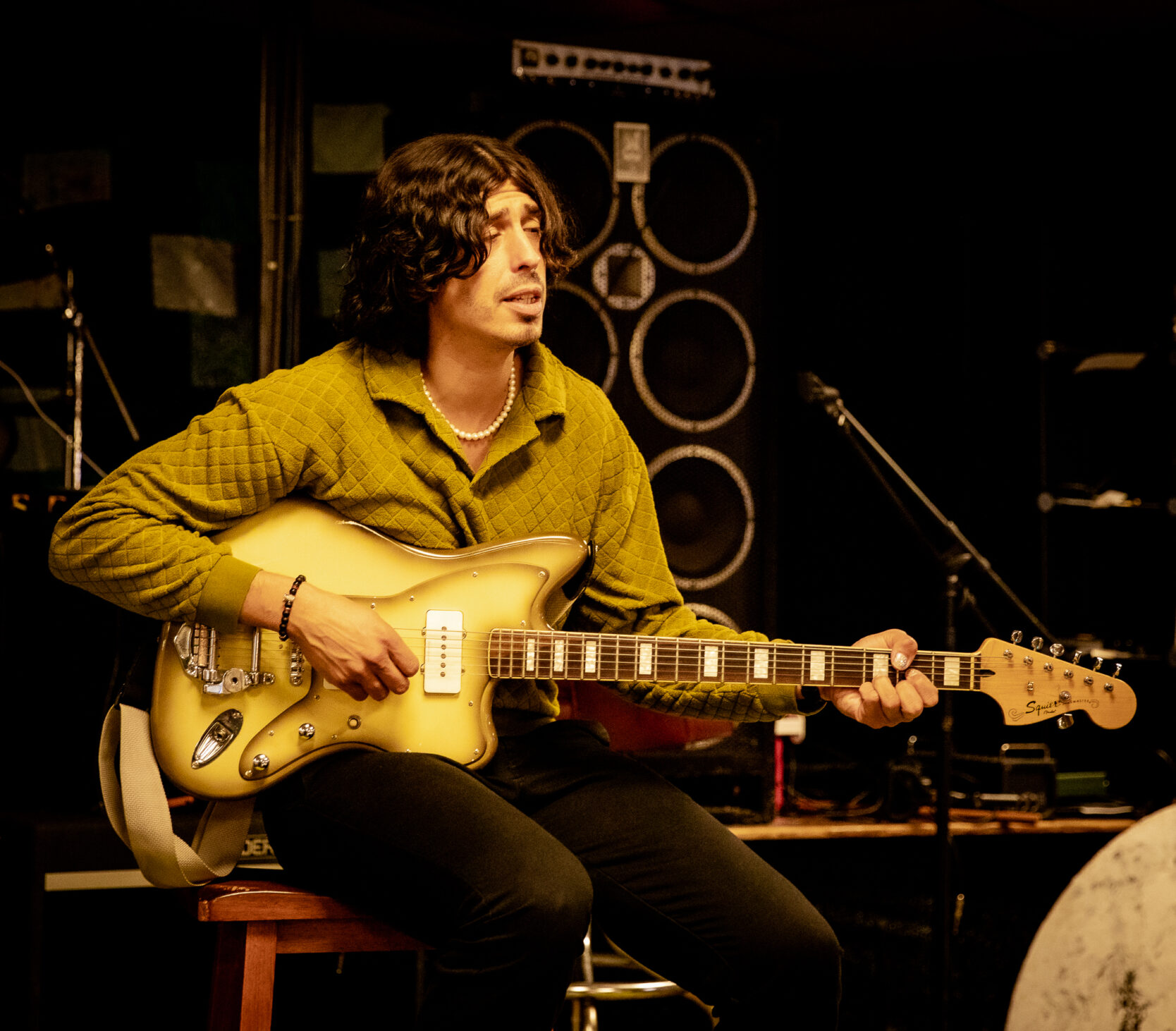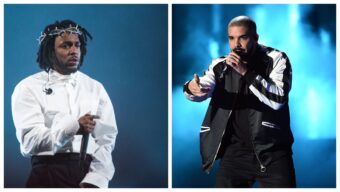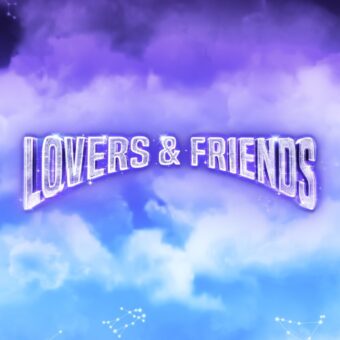Living in Athens, Georgia means living by changes in the music scene. New bands emerge, old acts or musicians pass on or pass away, and sometimes tried and true Athens acts reinvent themselves reborn anew.
Last week I had the chance to meet with Niño Brown, 2022 Athens Hip-Hop Awards winner for “Best Male Act,” at Buvez, a coffee shop that is also a bar and performance space, in an area called New Town. At its closest point, Buvez is less than 50 feet from active train tracks, and that regular sonic locomotive interruption is a good reminder of an industrial history from which Athens has mostly reinvented itself from.
It is also a reminder of lasting legacies of segregation that still afflict this town like so much of America. New Town is a historically Black neighborhood and is now the center of fights around development, gentrification, increasing property costs, and displacement of already marginalized people. These fights underscore the feeling of “two Athens” within the music scene. One Athens, an Athens of color, can be seen at the Hip-Hop Awards, and the other is the rest of the music scene, which is mostly white.
As Niño Brown (who prefers that his age not be revealed) approaches, I’m overcome with this theme of reinvention, particularly in regard to race and music, since like most Athenians versed in the local scene, I’ve known him for almost a decade as Cortez Garza, singer-songwriter of Americana and folk music. Standing a little over six feet tall, shoulder-length wavy raven hair slicked down under a ball cap, looking casual and controlled in street fashion, Brown stands out in his surroundings. Here is the man who, under the name Niño Brown, has released 12 singles, 2 EPs, and 14 videos in the last year and a half.
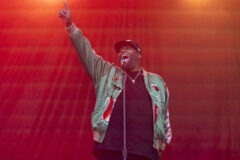
Also Read
QUOTE/UNQUOTE
The other tables are densely occupied by college students studying. The two nearest young men are discussing inter-faith Judaic and Christian theology, and I perk up at the word “midrash” before seeing Brown. Like those early rabbis trying to make sense of the Tanakh in the first Midrash, I am also trying to make sense of Niño Brown’s career and evolution, and suspect that, like so much connected to music, nightlife, and personal growth in this town, alcohol and drugs might be involved. Athens might be a music town, but its raison d’etre is the main campus of the state university, University of Georgia-Athens. Rockers, rappers, football fans, and college students generally all like to drink. Last year alone, Athens-Clarke County, with a population of 130,873 (approximately 40,000 UGA students), gave out approximately 350 licenses to serve liquor, according to the county Finance Office.
All right. Let’s start with some background. Where are you from, and where are you born?
Niño Brown: I was born in Frankfurt, Germany. My dad was in the military, so he was stationed out there. I wasn’t there long. I don’t really have any memory of it. I guess probably during maybe year one or two we moved back to the States, and then, you know, my earliest memories are in Savannah, Georgia.
So you grew up in Savannah, you would say?
I would say my first, you know, cognizant years that I can remember certainly were out there. And then possibly around six or seven we moved to the Atlanta area. I was there for, you know, pretty much all of school. And, you know, I still very much identify myself as a native to Atlanta. I have family that lives out there and I go out there quite often. So I feel most at home in that area for sure.
So what brought you to Athens, Georgia?
Well, my parents moved out here around, I want to say, ’02-’03 from the Atlanta area. They’re business owners and restaurateurs, and so they were just kind of following their muse. I guess it was 2007 when I moved here. I had spent a few years in North Carolina, just kind of moving around and living in the Charlotte area, and made it up to Greensboro. I was out there for about five years hanging out, doing music. But in that time period I did some college radio and, kind of, sort of revisited the idea of Athens being this music community and sort of, you know, obviously growing up in Atlanta, you have this awareness of Athens and the thriving music scene, but never really experienced it too much.
Working at the radio station, I saw a lot of Athens acts, like hope for Golden Summer and Cinemechanica and We Versus the Shark. So I became a little more focused on what was happening in Athens. And then, you know, logically once my parents moved here, it just made sense for me to come experience it for myself.
Nice. What’s your family background, and was its ethnicity a part of your upbringing?
My dad’s Mexican, and my mom’s Puerto Rican. I would say that, yeah, it’s a huge part of my upbringing, you know? The Hispanic culture, Latino heritage, you know what I mean? I’ve never avoided that. I think, if anything, I’ve sort of confronted it and tried to embrace it to the best that I can. I mean, I’m not fluent in Spanish by any means, and I don’t find myself necessarily in that environment where I’m having to communicate in that way.
Did music play a big role in your family growing up? In general, but also, is there any kind of connection between your Mexican and Puerto Rican heritages and music?
I’d say music in general from a very early age was pretty big to me. And in my family. I was obsessed with radio as a little kid. And pretty much anything that my parents listened to. Both of my parents were into salsa and other Latin rhythms.
When did you first pick up a guitar?
I was probably 12 the first time I put my hands on one. I didn’t really start learning stuff and really putting it together until I was about 14-years-old. But I remember the first time I saw a guitar. I just knew that that was gonna be part of my life. And I was biding my time until I could get around one. My dad got a miniature guitar. It was playable, a real guitar. It was small, and they put it up in the house, like an installation or something, over the stereo. I would pull it down and just kind of sit with it.
What were your early influences as far as musicians for songs you were learning or the kind of people you were emulating?
I remember my first real passion was probably rap. But I really liked Michael Jackson and the Beatles as a little kid, prior to me developing any skill as a player of the guitar or anything.
What point did you start gigging?
I was in my early 20s. Around the time that I went to North Carolina. I grew up with a group of friends that played shows in high school. It was amazing to me that they were doing this, and it was totally what I wanted to do and where I wanted to be, but I was preoccupied and focused on the chaos of my teenage years or whatever. I couldn’t find the discipline to really put it all together, but when I moved to North Carolina, it was like I had been writing songs for some years and practicing them and playing them on my own, playing them for friends or whatever, and sort of built up a confidence that maybe it was time to start trying to actually share them. So I got some coffee shop gigs and then spent so many years just kind of doing it on my own.
And was there a direct stylistic influence as far as the kind of singer/songwriter stuff you were doing, like Bob Dylan or someone?
Dylan, yeah, eventually it became Dylan for sure. I would say, as far as writing songs on an acoustic guitar, definitely Dylan, and it like came later in life, you know? I mean, growing up in Atlanta, we were listening to a lot of R&B and rap and rock. But when I became a more serious songwriter, I was introduced to Dylan in my early 20s. And like, I’m talking about a real introduction. I mean, I always knew who he was. But now I paid close attention. I was particularly struck by the technicality of the guitar playing. I was able to kind of pick out what was going on a little bit better as I got older and listened to it more, and my ear matured and my taste matured, and I could see that there was a lot going on there. I tried to be the best guitar player I could be on a technical level. But there was something going on that I couldn’t quite make out and didn’t know what it was. And I became pretty fixated on figuring out what he was doing and what a lot of those players of that time period were doing. And it sort of became the mission.
And so you were already gigging in coffee shops in North Carolina, mostly around Charlotte and Greensboro, before coming to Athens.
Yeah, but to be honest with you, before the singer/songwriter solo acoustic thing really took off, I had joined a few bands. They were the screamo post-hardcore kind of thing that was happening at the time. So I was singing for a screamo band and writing songs on my acoustic guitar, and after a couple years in one band, we broke up, and I joined a couple of bands that didn’t really take off, and that’s when I really like decided to focus on the singer/songwriter solo Americana thing that you probably are more familiar with.
You’ve got a history of reinvention, it sounds like.
Yeah. I don’t like doing the same thing forever. What I found with my previous project, the Cortez Garza Americana thing, was that I wasn’t allowed to do anything else. I accepted that for a long time, as long as I could.
When did you start using the name Cortez? Was that intentional as a stage name for the persona of you as a singer/songwriter?
It was definitely a stage name, but I had a friend in high school that called me that as a nickname. And to this day it’s kind of weird how long that’s been primarily what the world knows me as. I was 14 or 15. My real name is Joshua.
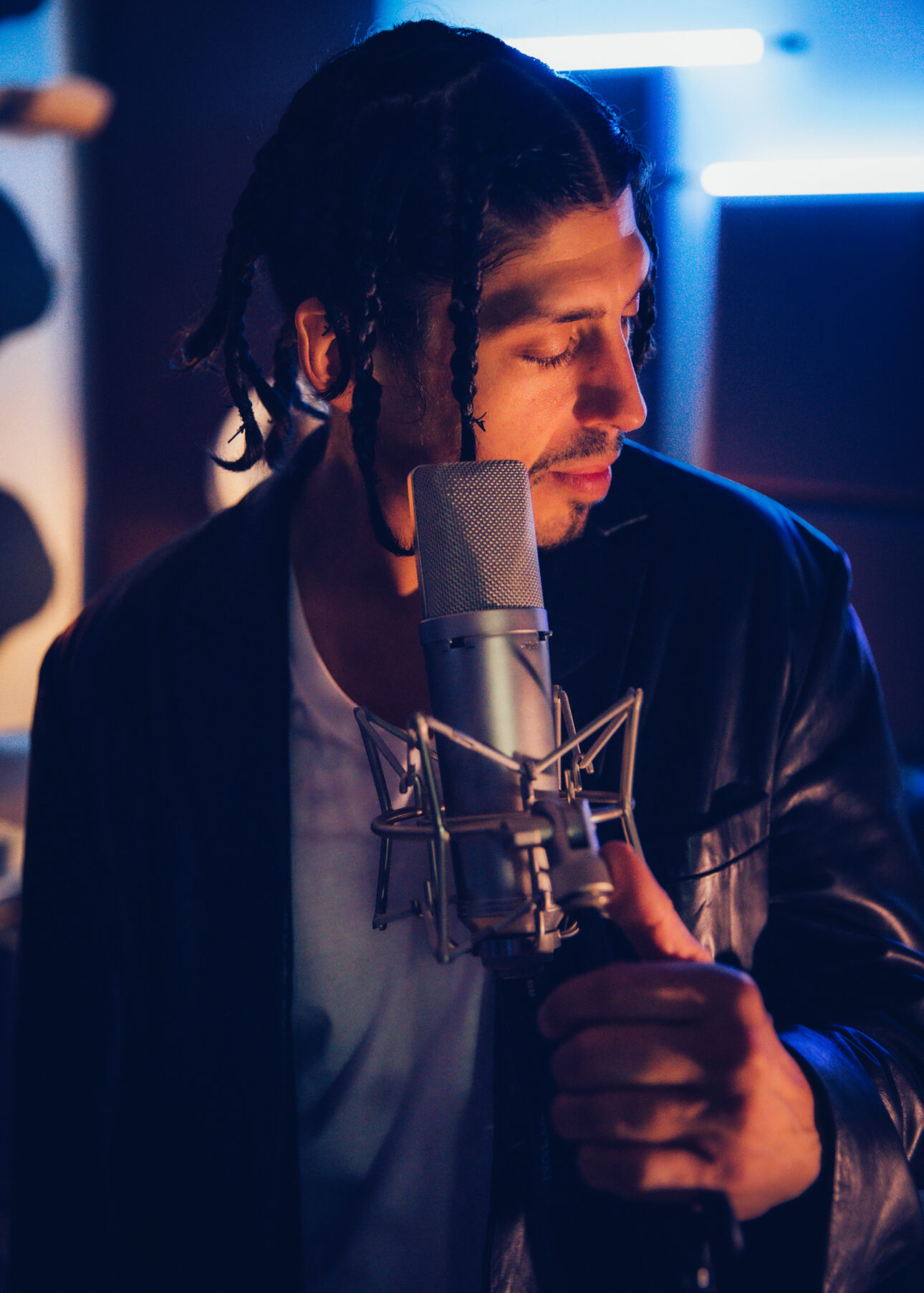
When did you get sober? Was this before the hip-hop work? Before Niño Brown?
I got sober in 2012, and that needed to happen — something I had been working towards in one way or another. It was a goal, we’ll put it that way. And it took some trial and error. A whole lot of bad decisions, and a kind of a rock bottom situation. A year or two before I actually was able to achieve that I went to my first meeting, and again, this was a goal. I knew I wanted to do that. I had been hearing about people that I respected who had managed to work that out for themselves, and I thought it was cool, you know? I went to a meeting or two and got a taste for that world and that community. And then finally, enough was enough. I was put in a situation where it was like, if I didn’t, then everything was just compromised, you know? So I was able to get sober in 2012. I stayed 100 percent completely sober for like six and a half, seven years. I didn’t touch a drop of anything, you know, not nothing to alter my state of consciousness. In 2019, I got in a motorcycle accident and took some medication that they gave me, and then things were up in the air for a time. I think that’s what most people would call a relapse.
Originally, was it just alcohol?
Originally it was just whatever I could get my hands on. When I moved to Athens, the alcohol thing was just so prevalent. I always liked to drink, but if you like to drink and you live in downtown Athens, it’s hard not to do that every night.
Was there a worry when you were trying to get sober that you wouldn’t be able to be as creative? You wouldn’t be able to write songs? You couldn’t be the musician you always thought you needed to be?
It wasn’t even about that at that point. I knew that I had something to offer with my life, and that was not gonna be even a possibility if I didn’t straighten out. Eventually you have to learn how to do everything again, whatever it is. Fortunately for me, I enjoyed going to the gym, working out, lifting weights, doing yoga, all those things. So those are the things that I leaned on for my mental health. Once I got sober, you know, a few months into it, you feel great. You feel amazing. You’re never gonna feel that good again. As time goes on, it just gets more difficult. So I was lifting a lot of weights, doing a lot of yoga. A few months in, I felt great. And that’s when I started to really explore the idea of doing music again and feeling comfortable trying to remember the old material. And then started writing new stuff, and that’s when things started to click, and I realized that I’m actually better as a sober person.
You had to rebuild yourself as a musician after getting sober?
You gotta be able to go out and be around it too. That’s still something that I deal with. I don’t really deal with the temptation too much, though. It definitely pops in my mind, sometimes when you’re having a bad day or you’re watching everybody else have a really good time, that you understand why people do that, and why I did it in the past. But I’ve gotten a bit older. I really enjoy just, like, going home. I’ll show up for a little while, and once I feel like I’ve gotten what I came for, I’m gone.
It was painkillers after your motorcycle accident that got you back wanting to be inebriated?
I thought I was able to do it and it wasn’t an issue at first. And then, having gone so long, telling people I haven’t done a single thing, that was an accomplishment for me. And once I removed that accomplishment from the equation, I felt like I was in a different place. It doesn’t make any sense thinking about it later, but it just seemed like it never even happened, all that clean time. I was kinda starting out at square one. You’re like, I’ll start over tomorrow. I’ll quit tomorrow. I won’t worry about it today. I’ll just enjoy myself or whatever. And a week turns into two weeks, turns into a month, turns into several months, and then you’re as bad as you were in the first place. I’m grateful for that experience, only because some people will say, and this doesn’t necessarily have to be true, but some people say that relapse is a part of recovery. Also, I know that there is a program that I can go back to, they’re people that are willing to stop what they’re doing and help me. Whereas before I thought that I could handle it on my own, and it just spiraled outta control. But yeah, that relapse was very instrumental. I ended up going to a five-week program. And then I had this renewed confidence and belief in myself, and creative juices started flowing again.
How many years has it been of the new sobriety?
Two and a few months.
It sounds like it was overlapping with the beginning of COVID. Did COVID make things harder or easier?
Dude, COVID was like, I thought it was the end of the world, bro. I didn’t know what was going on. You know what I mean? I think a lot of people were probably feeling that way. Let’s just say that, you know, COVID gave me the excuse to just kind of… You know, I mean, we couldn’t go outside.
That was also synced up time-wise with the relapse?
For sure. It was like the tail end, and right around the time things started leveling out. I went to rehab, and it was in rehab that I came up with Niño Brown.
What was the motivation? What led into this? And it’s Niño Brown, you have the tilde on the “n,” which is different from the character Wesley Snipes plays in New Jack City. But is it based on that character?
Sure. I would say that everybody wants to be a Niño Brown in that world. Such an iconic character in what he did. There’s a lot of Niño Browns out there. It’s funny. Growing up in Atlanta, the crazier thing that I’ve done musically is the folk and Americana thing. Anybody who grew up with me, who knows me, was like, “What? This dude’s, like, country. What are you doing?” The rap thing is… I grew up in that community and that world. It’s second nature. And so, all of it, the street element, the fashion, the lingo, everything: It’s just who I am. I grew up in primetime, like golden era hip-hop from the ‘80s to the ‘90s to 2000. I experienced it all, it’s glory. I grew up with a side hustle, doing things like taking chances, taking risks. And so that is the Niño Brown aspect of why I went that route. And then I just wanted to embrace the Hispanic side of who I am, and so I put the little tilde. And the name itself came to me, and what really made me wanna start rapping was I was listening to all of this new SoundCloud stuff, especially during the relapse period. I got really into this new generation of SoundCloud rap. It reminds me of the punk movement. You know, how raw, how gritty, how dumbed-down. I loved it, and it spoke to me. I wanted to do that for fun. And a lot of “little” rappers and “young” rappers came from this kind of sound, and so that’s what Niño was. It was my way of saying little, or young, or whatever. And then the irony of just me being, older than I’ve ever been and trying to become a rapper.
You’ve made it “the brown kid,” you know?
Yeah. And that too. You hit that as like the last meaning is like the brown aspect. And that’s what I feel like. And I definitely don’t want for people to feel like this is cultural appropriation on any level, because Hispanics and Latinos were there from the beginning in the hip-hop space, and it really gets on my nerves that that is overlooked.
Hip-hop is more of a homecoming for you, back to your roots.
That’s exactly how I put it. I’ve put it that way before.
All right. What I’m wondering now is what’s next? Will you be going back to performing under the name Cortez Garza? Is Niño Brown who you are now as a performer, or is it just the hip-hop project? Or are you Cortez Garza who performs as Niño Brown?
Niño Brown is a project that gives me the freedom to be unfiltered, right? To talk about things, to say things, to do whatever I want. I like the idea of continuing to do Niño Brown stuff. But I don’t know that it’s gonna be the end-all, be-all. I kind of like the idea of tapping into another facet of my personality, and just being Joshua and just writing songs like Adele or Elton John. Just like something that’s a little clean, a little more inspiring. I’m really into a Bob Marley or a Marvin Gaye kind of thing, and I can see that happening, especially as I continue to age and mature. But I don’t know that I’ll ever be Cortez Garza again. To me, there was always these three facets of my personality. Of course Cortez is still sort of edgy, but Niño Brown is very much an alter ego that kind of just doesn’t care at all. Whereas Joshua’s really who I am, and I don’t know that I’ve explored that. Just kind of a quieter, more sensitive, intentional, disciplined in terms of the message that I want to convey. It can be difficult to filter out all these things and be a little more conscientious of what I’m contributing to society.
And so, Cortez Garza is dead?
For the most part, if I could get away with it, nobody would ever call me that again. I associate that with coming of age and growing pains and adolescence and just a lot of mistakes. But I can’t break myself at times from telling people to call me that. I got to the point finally where the first time I got sober, I was trying to tell everybody to call me Joshua, but I had spent so many years putting Cortez Garza out there that I couldn’t escape it.
Niño Brown’s newest single and video is called “Dizzy,” and it was produced by Basher Media. Brown describes it as “a genre-bending affair with equal parts indie rock, pop, punk, and rap.” The first full-length Niño Brown album is was released in March 2023.

